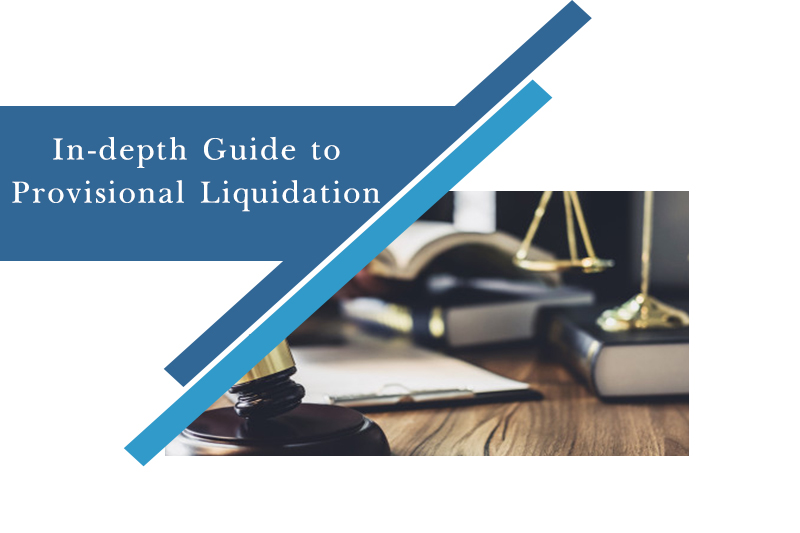Your Simple but In-depth Guide to Provisional Liquidation

February 23, 2021
Legal matters are hard to navigate for the layman due to the heavy use of industry-based jargon. Thus, instead of taking an unnecessary risk, it is better to appoint an expert to look at things. Doshi Outsourcing can assist or help with insolvency outsourcing but before going into that; there are a few frequently asked questions you’d rather have addressed.
1. What is meant by Provisional liquidation?
Provisional liquidation is a part of corporate insolvency. In nature, it is an emergency-originated procedure that is governed by the Insolvency Act of 1986 and also part of the Insolvency Rules of 2016. Once a winding-up petition has been set into motion, the appointment of a provisional liquidator can be done.
2. When is a Provisional liquidation appropriate?
Provisional liquidation is best if there is found to be a real concern that in midst of the process of the winding-up petition and its actual making by the court, there will be negligence or some gross neglect of the company’s affairs and so the present assets will be unnecessarily expedited.
3. Why is a Provisional liquidator appointed?
The task of a provisional liquidator is to ensure the preservation of the assets of the company. Thus, during this period of provisional appointment the company’s directors will find their powers to be in effect – terminated. The directors are only granted what is termed to be a ‘residual’ sort of power. By this power, they can either apply to dismiss or even try to resist the winding-up petition.
4. When does the court usually appoint a Provisional liquidator?
The circumstances of when such is to be done are not written hard and fast as they are not prescribed by a case of law or any statute. The court chooses to apply its discretion and does usually make such an order when it finds that:
- The company in truth is insolvent and it is a likely proceeding that a winding-up order shall take place during the hearing
- There is a probable risk to the assets of the company till the time the hearing of that petition takes place
- Also, if there is a public interest as some illegal activity was being done by the company – then in that case too the appointment of a provisional liquidator will be considered
5. For what type of companies can the application for Provisional liquidation be made?
Only those companies that come under the jurisdiction of the court of England can be governed so. The court should have the jurisdiction for the winding-up order. Interestingly, foreign companies are not exempt as these fall under the court’s jurisdiction over unregistered companies. That would be section 221 of IA 1986. Therefore, the discretion of the court in the above case can be considered.
6. What is the procedure to be followed when a company is put into the process of Provisional liquidation?
The application of the court order to appoint a provisional liquidator can only be done after the petition for the winding-up process of that company has already been presented to the court and post this in between the time the winding-up order is finally made. This application can be made:
- By a creditor of that company and even the person who might have been behind the original winding-up petition
- The company (itself)
- Another persona as listed in the categories highlighted in rule 7.33 of IR 2016
7. Who should the application be made to?
This application needs to go to a judge hearing those cases that come under the Insolvency and Companies List of the High Court. This Interim Applications Court was created in London so that these applications could be dealt with all the faster. This court functions under the umbrella of the Insolvency and Companies List in January (2019).
When making the application ensure that it is supported by a statement of a witness that states grounds on which the appointment of the provisional liquidator will be made.
8. What should the applicant’s evidence indicate?
- That a winding-up order will be posted upon hearing of this petition
- Pending the hearing, there is a threat or risk to the assets of the company (including records)
Point to note: Considering the provisional liquidation to be a sort of remedy such applications are made on an urgent basis and no notice is given in advance to the directors or even the company.
Points to remember when the application is not made with specific notice:
- The application would require to give all information to the court of facts
- If the wind-up is dismissed then the losses incurred in the process and the provisional liquidator’s fees would then have to be borne by the applicant
9. What does the provisional liquidator do?
Mostly the court appoints the powers as well as the functions in the court order. Preservation of the company’s property, while the realization of the winding-up process is in place, is one of the tasks. An investigation may have to be made to see whether the property of the company has not been misused.
However, as elaborated before, being a part of legal proceedings, it makes sense to take special care during such proceedings as even a member’s voluntary liquidation is hardly a cup of anyone’s tea. Doshi Outsourcing can help make the legalities clearer so that you have the best representation in the most trying of times.


